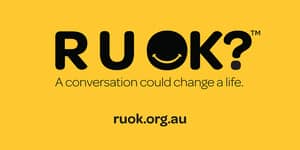Google are changing the way they track users around the web. They are "charting a course towards a more privacy-first web". - Google.
Last year, they announced that they will be phasing out the use of Third Party Cookies. This means the Google Ad Network will not use them anymore to target and track users and the Chrome Browser will be blocking them.
A Brief History of the Third-Party Cookie Phase Out
In February 2020, Google first announced plans to phase out the use of third party cookies. The reason being - "Users are demanding greater privacy - including transparency, choice, and control over how their data is used - and it's clear the web ecosystem needs to evolve to meet these increasing demands,". You can read the entire announcement, here.
Although Chrome isn't the first browser to phase this out, it's the largest. In June 2021, research saw that Google Chrome makes up more than 65% of the web browser market. It also accounts for more than 69% of the global web traffic. This change will have a big impact on how advertising is done digitally.
So, what are cookies?
There are two types of cookies that Google use. Let's run through these definitions and how they differ from one another.
First party cookies
What are first party cookies? A first party cookie is created and stored by a website you are visiting directly. It allows the site owners to collect data, remember settings and carry out functions that will help provide you with a good user experience.
Third party Cookies
What are third party cookies? These are cookies (imagine them as small files) created and placed on your computer that are there to track you and follow your journey around the internet. Some ways third party cookies work:
- They track which sites you visit, what you buy and then build an anonymous profile of your interests.
- Advertisers can then serve you targeted ads, they can know which ones you've seen and which ones you've clicked on.
- Ad networks can combine cookies to put you into an audience segment which allows advertisers to serve relevant ads.
- Ad companies buy and sell these 3rd party cookie data.
So the main difference is that first party cookies are created and used to remember details such as passwords, language preferences etc. for when you visit a site directly and third party cookies are mostly used for tracking and advertising purposes.
Google have announced that they are abolishing third party cookies only.
Who will this cookie-less world impact the most?
These new changes will challenge marketers to think outside the box and to get equipped with Google's new way of advertising. Businesses such as Ad platforms who are reliant on dropping cookies for tracking will be impacted. Ad platforms will have to re-engineer their strategy to work with Google's new structure. We will also see some retailers falling victim to this change. A lot of retailers have relied heavily on retargeting consumers, forgotten cart items and 'interested' products. Being unable to bring attention back to their brand can hurt their bottomline.
But, of course, Google is not going to leave you completely without Search Engine Marketing.
What is Google's alternative?
The Privacy Sandbox is the response to the cookie-less future and its purpose is to provide anonymity to the users data which at the same time still gives companies the tools to promote their businesses.
In March 2021, Google first rolled out a trial for their Federated Learning of Cohorts (FLoC). FLoC is the alternative to third party cookies. Instead of a personally identifiable cookie, FLoC will keep track of a user's browsing habit across the web then analyse your behaviour to add you to a group of like-minded people who share similar interests. This allows advertisers to show you relevant ads, but without being so specific that advertisers can identify you personally.
Google calls this 'interest-based advertising'. It allows you to hide within a crowd of users with similar interests. So Google will still technically deliver targeted ads to you, but it will do so in a more anonymous way.
 Are you affected by the Sendle service suspension? We have an immediate shipping solution for you!
Are you affected by the Sendle service suspension? We have an immediate shipping solution for you!










 Facebook
Facebook Twitter
Twitter Instagram
Instagram Linked In
Linked In YouTube
YouTube